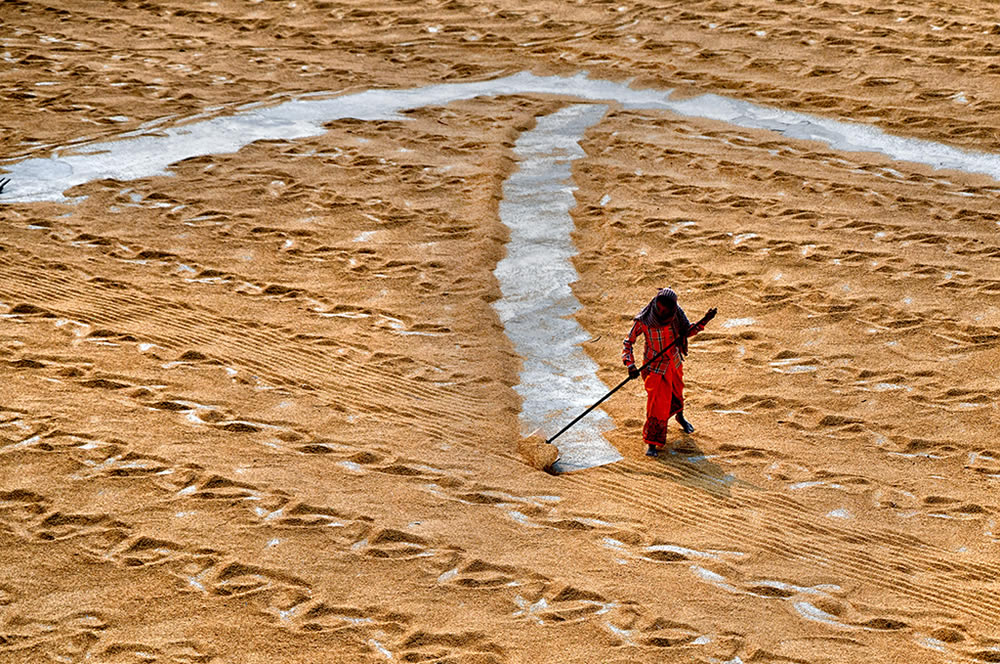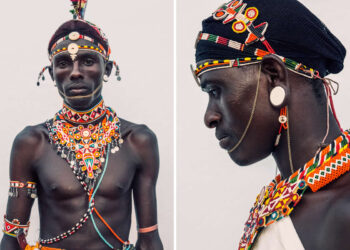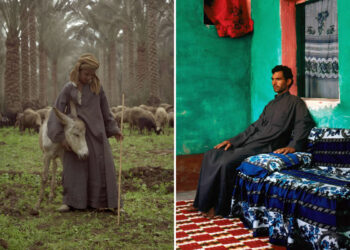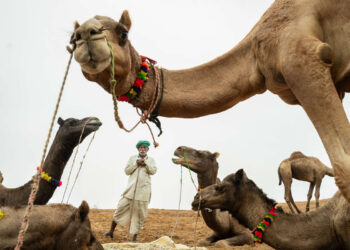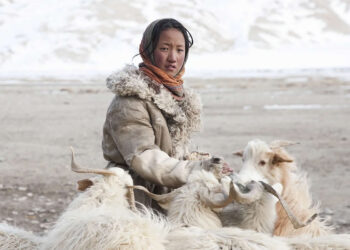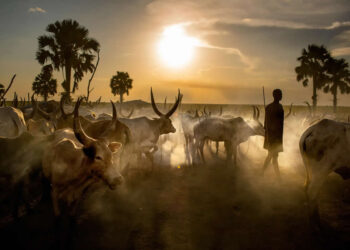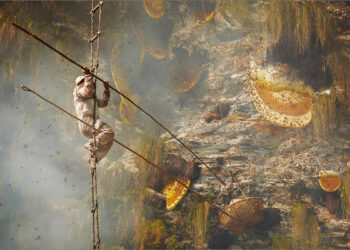The drying of paddy is the most important part of making rice from raw paddy. In rural India, poor people still follow the manual process of drying raw paddy before taking those dried paddy into husking mill for milling. In modern times, all activities related with paddy processing are done through fully automated machines for reduction of time, cost and getting finest quality of rice. However, setting up of a fully automated rice mill involves huge investment and working capital. So, we still find rice mills, operated manually by engaging large quantity of laborers. These kinds of manual and/or semi automatic rice mills are called locally as ‘Chatal Mills’ as large ground where boiled paddy are placed for drying is called as ‘Chatal’.
The mechanical process of conversion of raw paddy into fine rice grain involves few steps. At first paddy are cleaned so that there are no foreign particles, dust etc. into paddy. Then cleaned paddy are boiled in big pot and after desired level of boiling, paddy are placed into big open clean ground under open sky for direct exposure to the sun for drying and normally it takes 2 days to dry completely in winter season. It may vary in summer and also it depends on variety of paddy. After drying at desired level, it is sent to rice mill for milling. So, it may easily be understood that manual process requires large scale of manpower. Labourers are fully engaged in all stages of paddy processing like placing paddy into boiler, taking boiled paddy in open space for drying and thereafter bagging and taking to rice mills. Both male and female labourers are engaged in paddy drying process. They stay in Chatal mill premises with their families, so that they may be engaged fully with the job during peak season.
In this photo story, similar processes are followed by labourers in a manually operated rice mill (Chatal mill) in a semi urban place of North 24 Parganas district. Here interesting fact is that labourers spread boiled paddy and run combs in it from time to time for drying evenly and quickly. These spreading and combing is done in such a manner, that it create different beautiful patterns automatically on the ground. It is not that labourers make it consciously but it seems that an artist has created beautiful patterns with paddy.
#1 Put To Boil
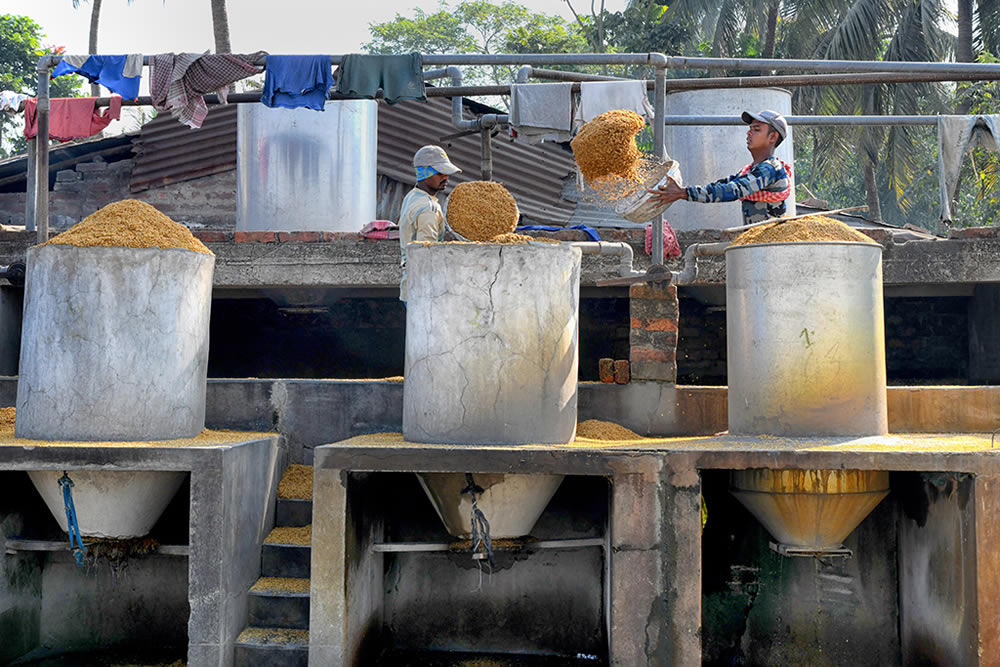
#2 Taken For Dying
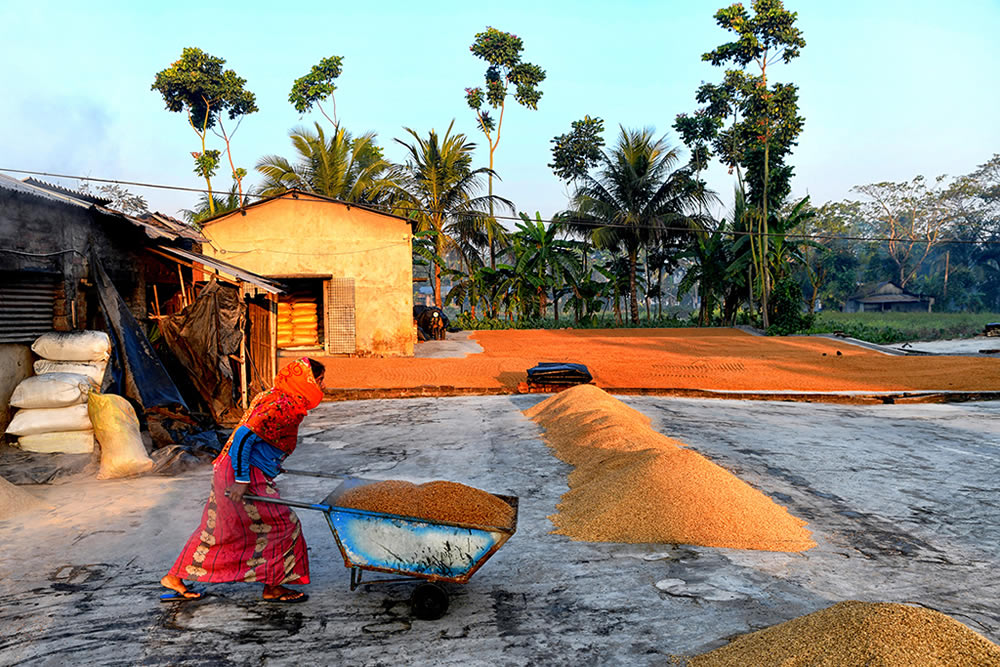
#3 Taken For Dying
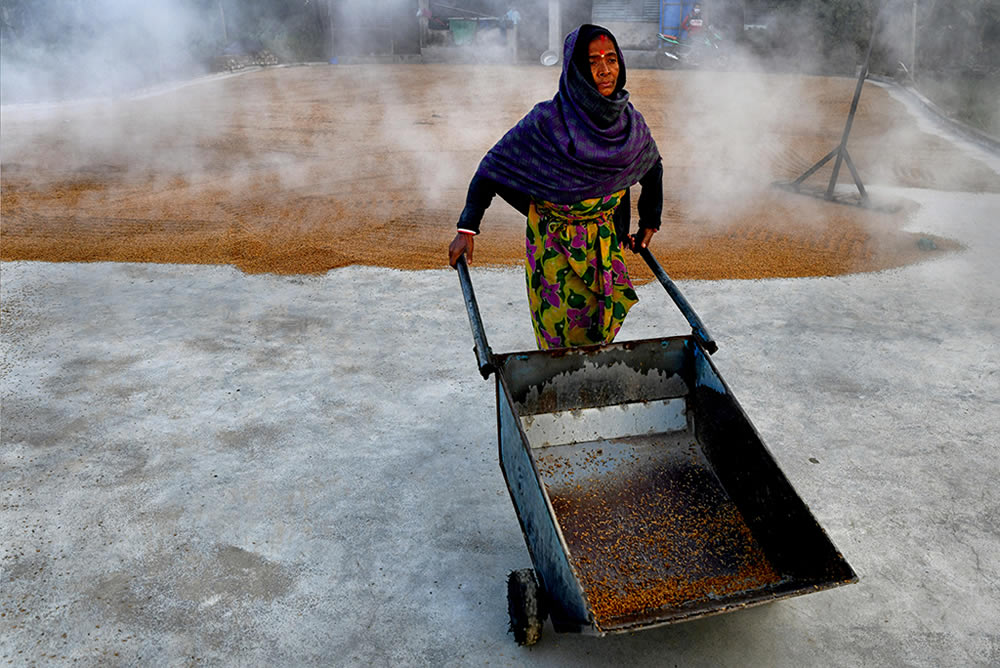
#4 Taken For Dying
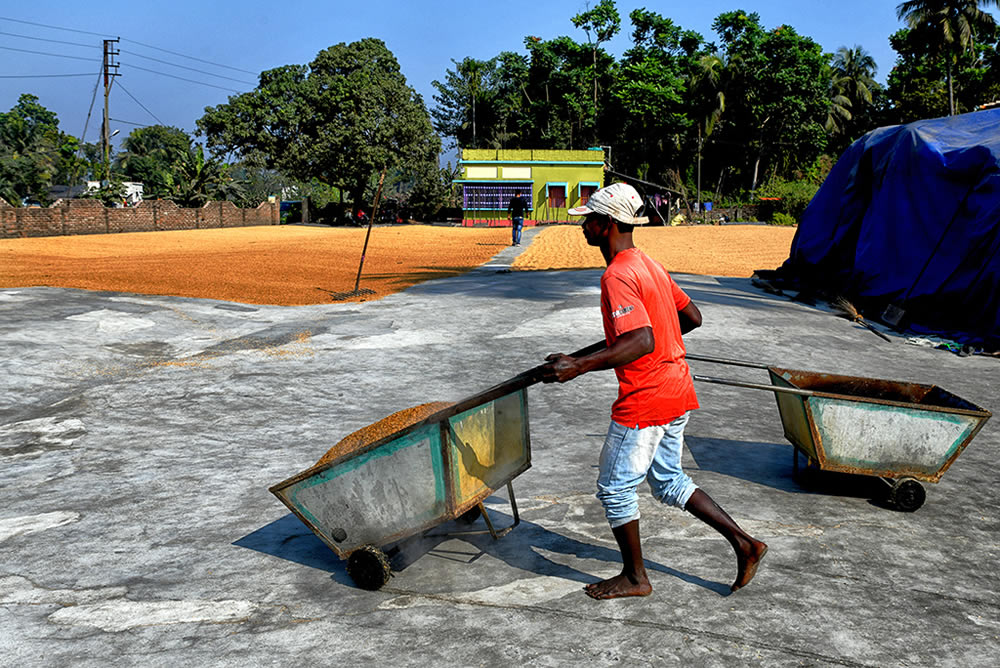
#5 Spreading
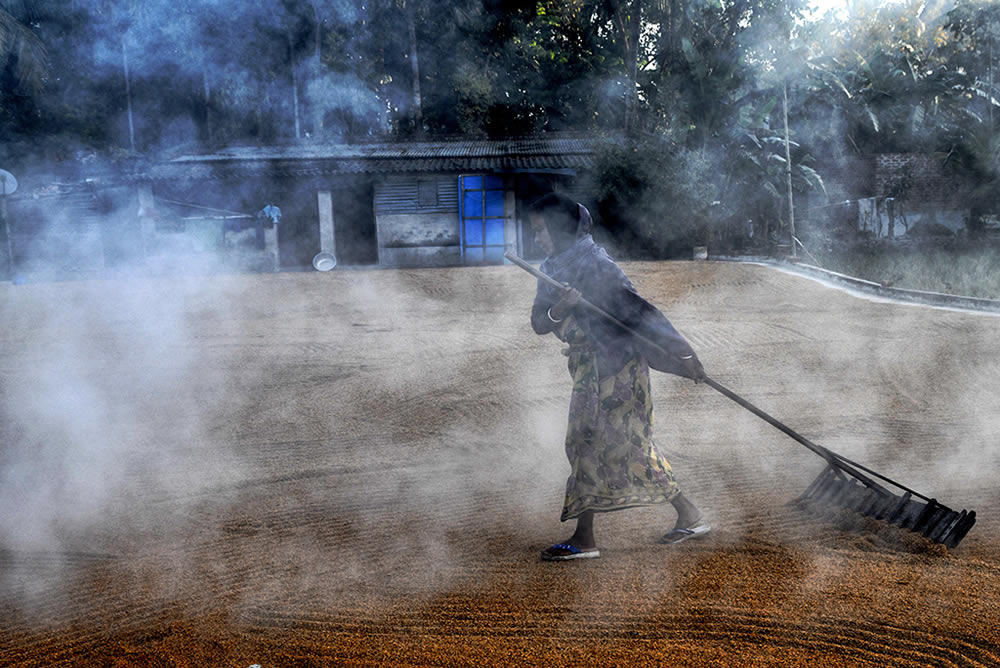
#6 Spreading
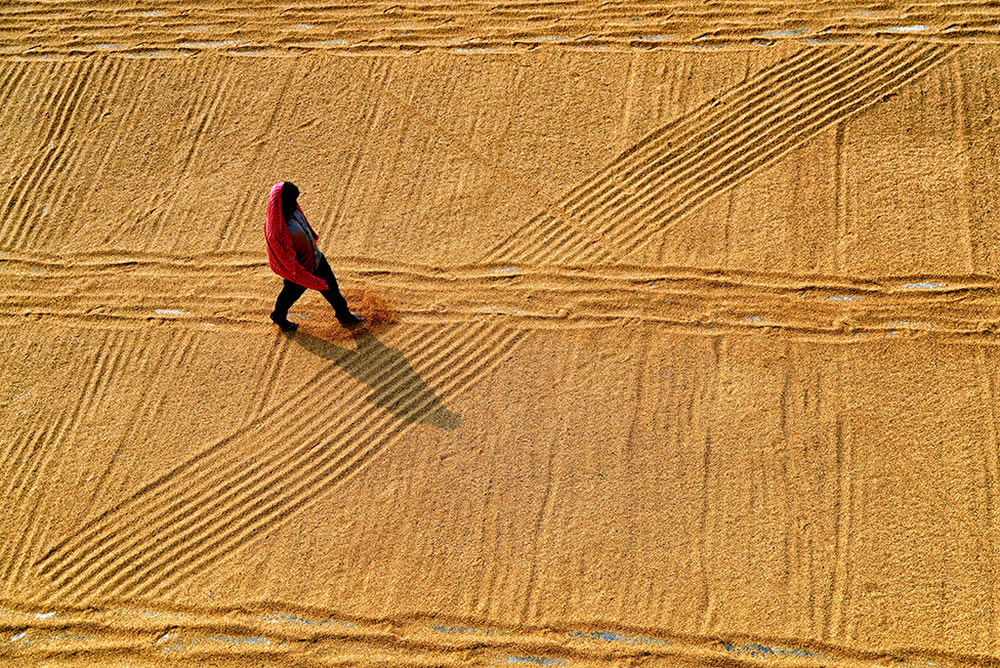
#7 Drying Pattern
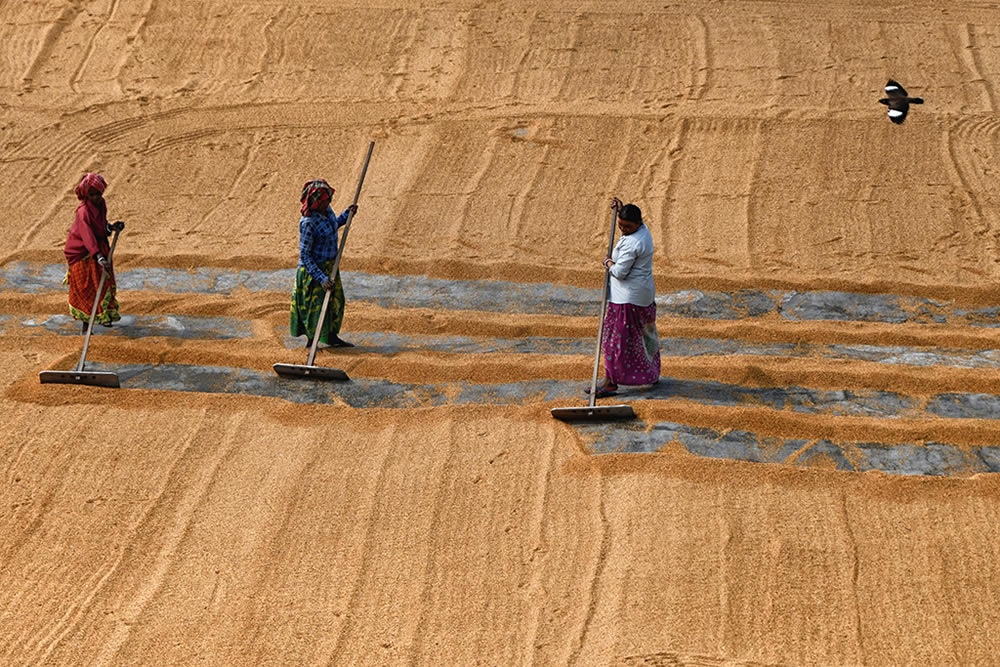
#8 Drying Pattern
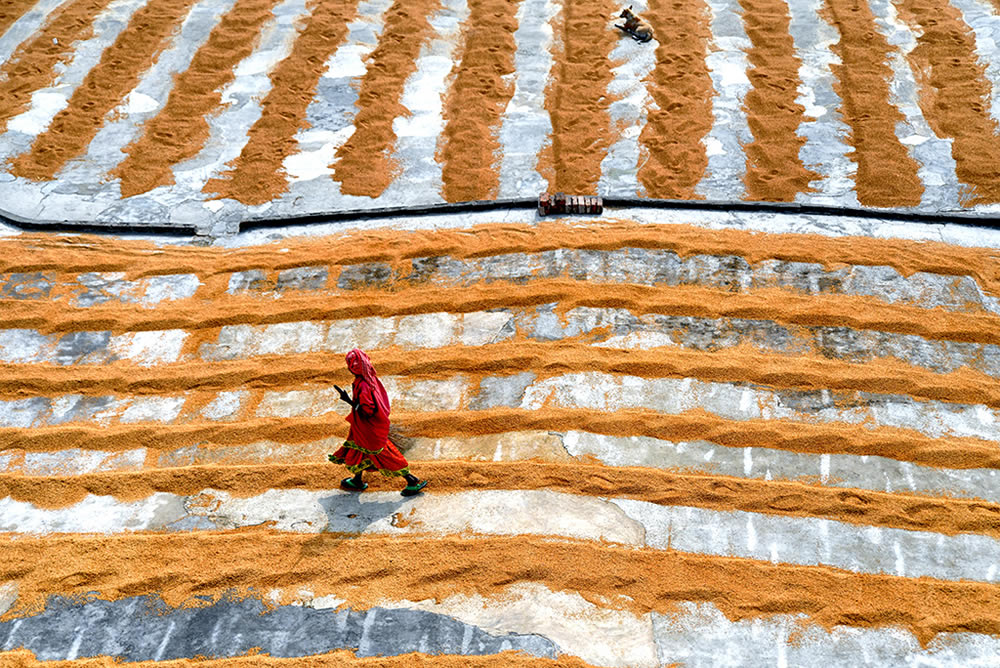
#9 Drying Pattern
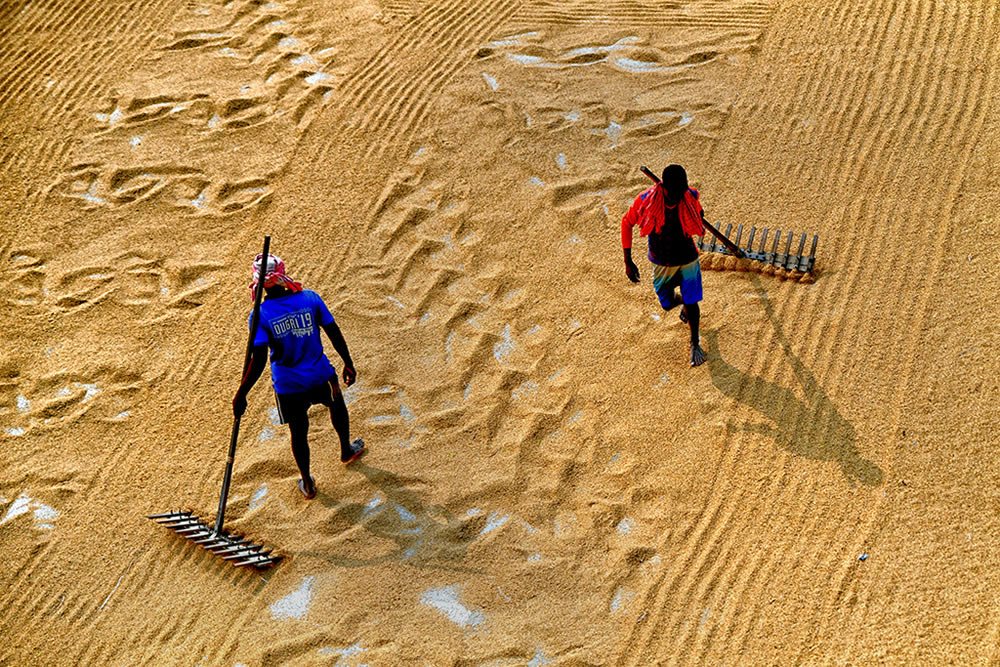
#10 Drying Pattern
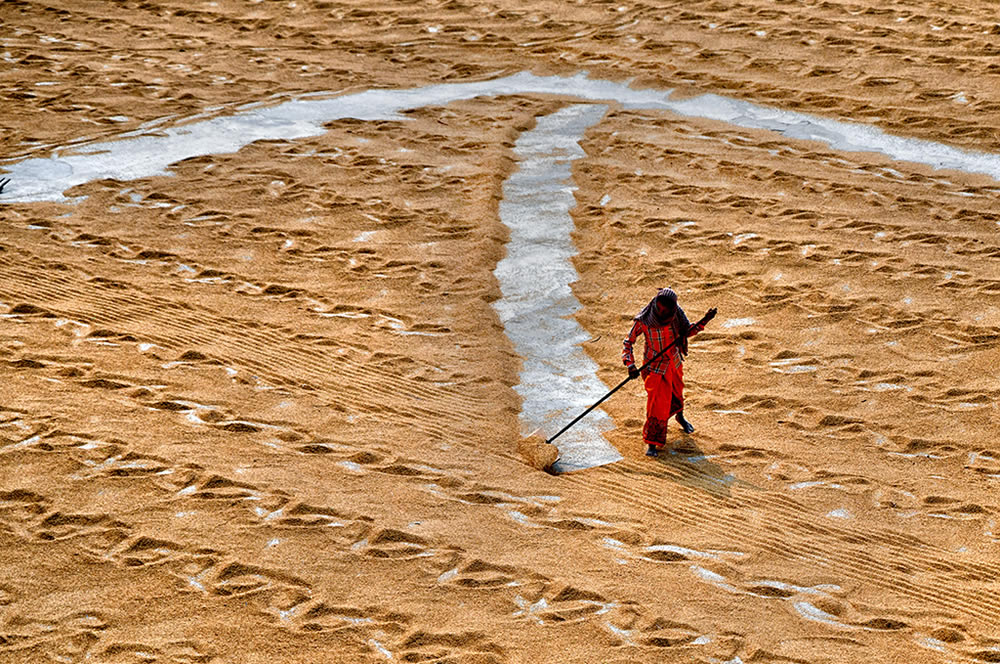
#11 Drying Pattern
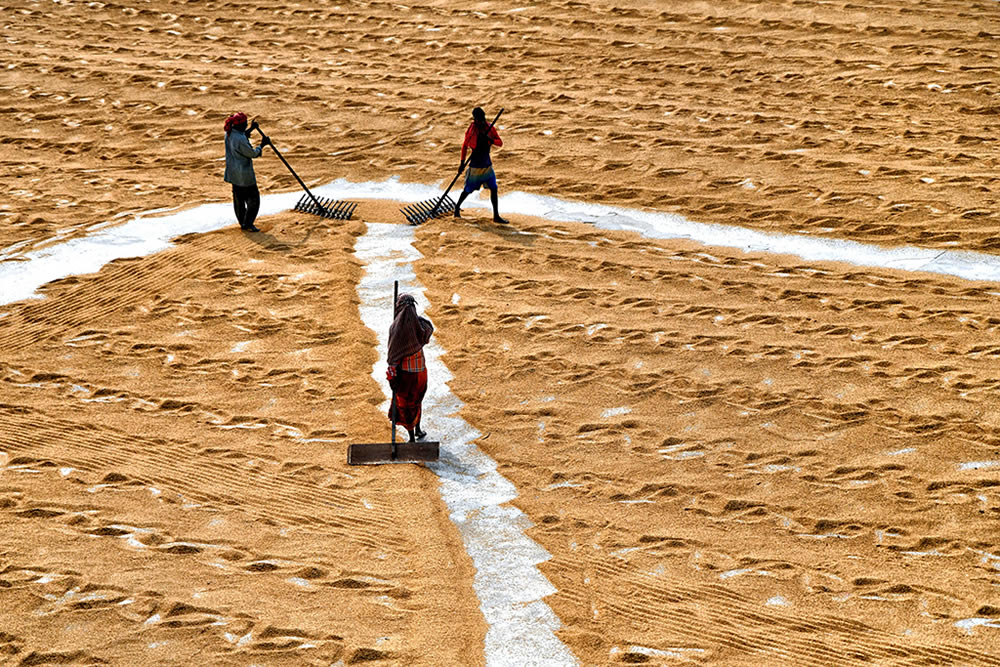
#12 Drying Pattern
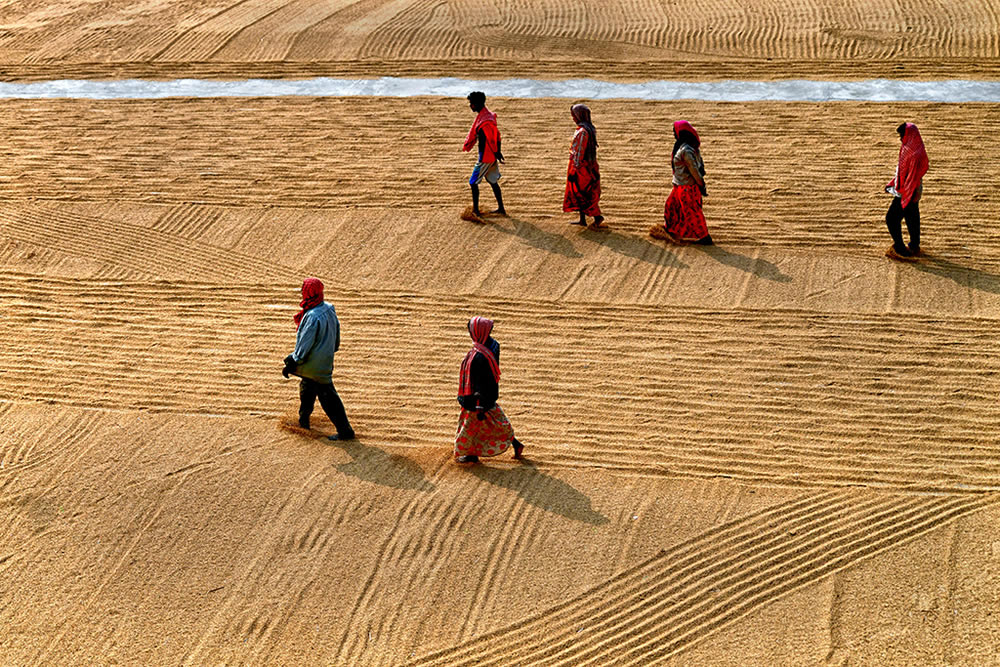
#13 Drying Pattern
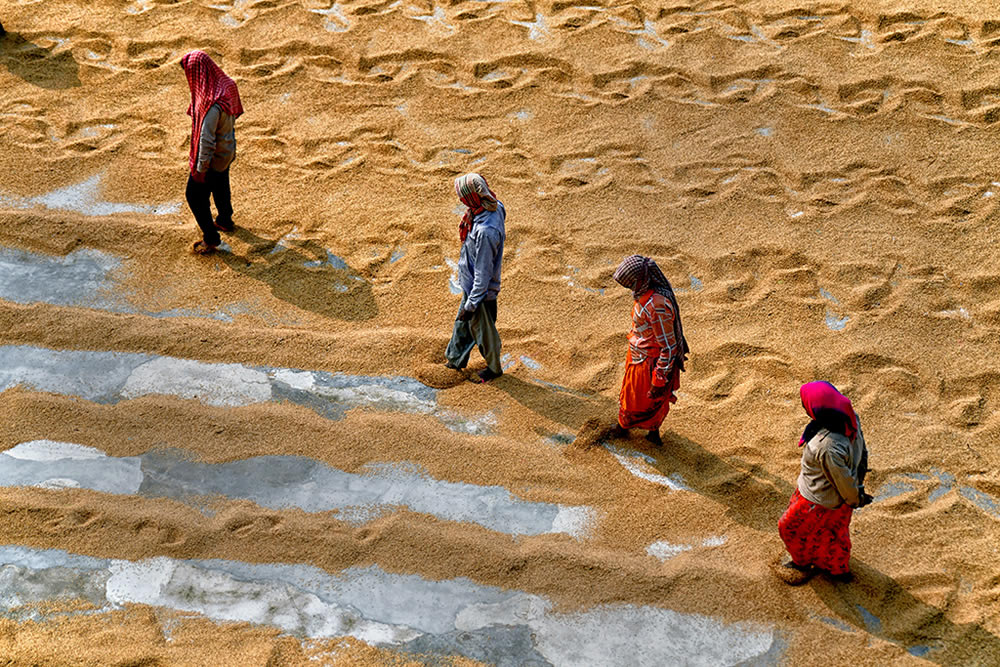
#14 Drying Pattern
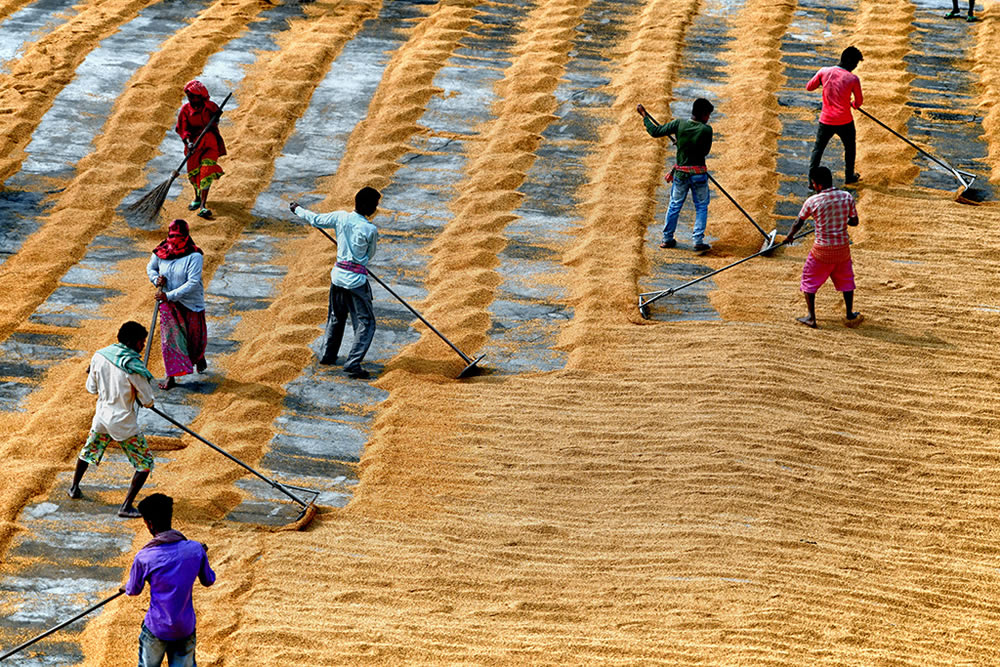
#15 Drying Pattern
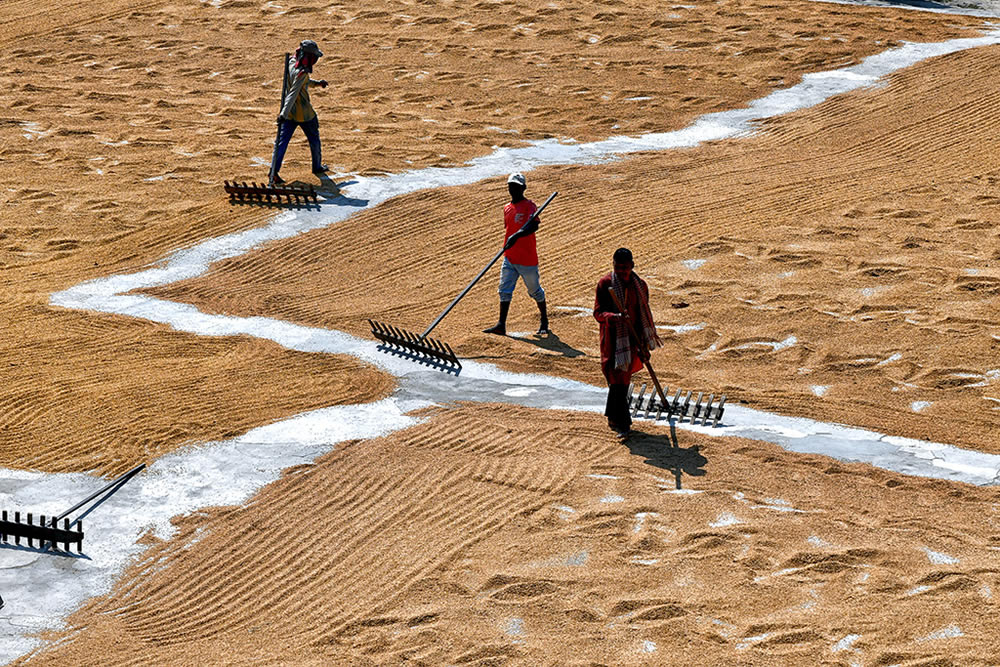
#16 Drying Pattern
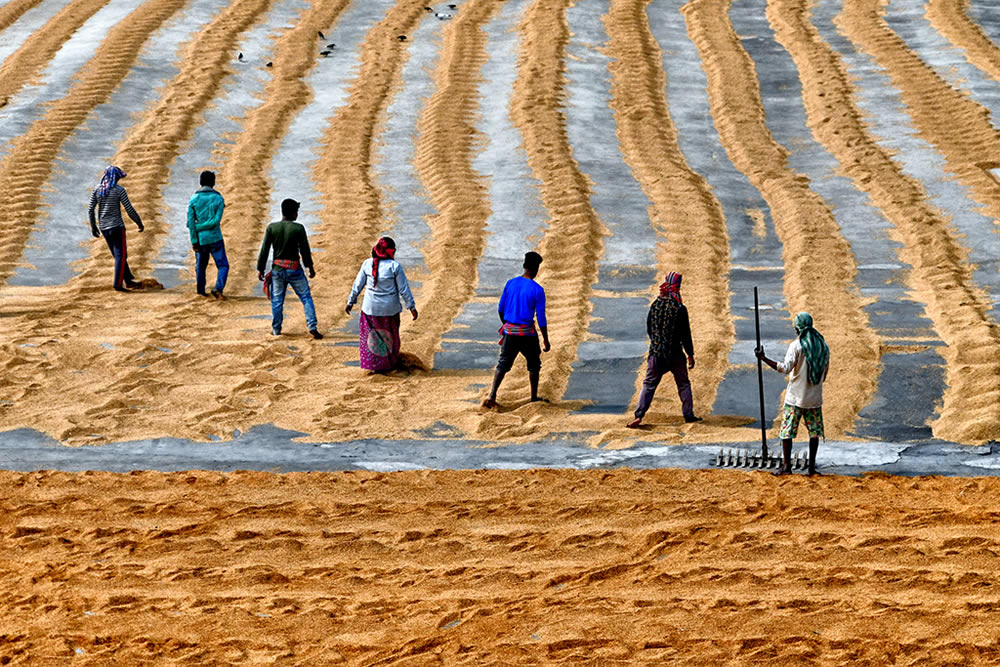
#17 Walking
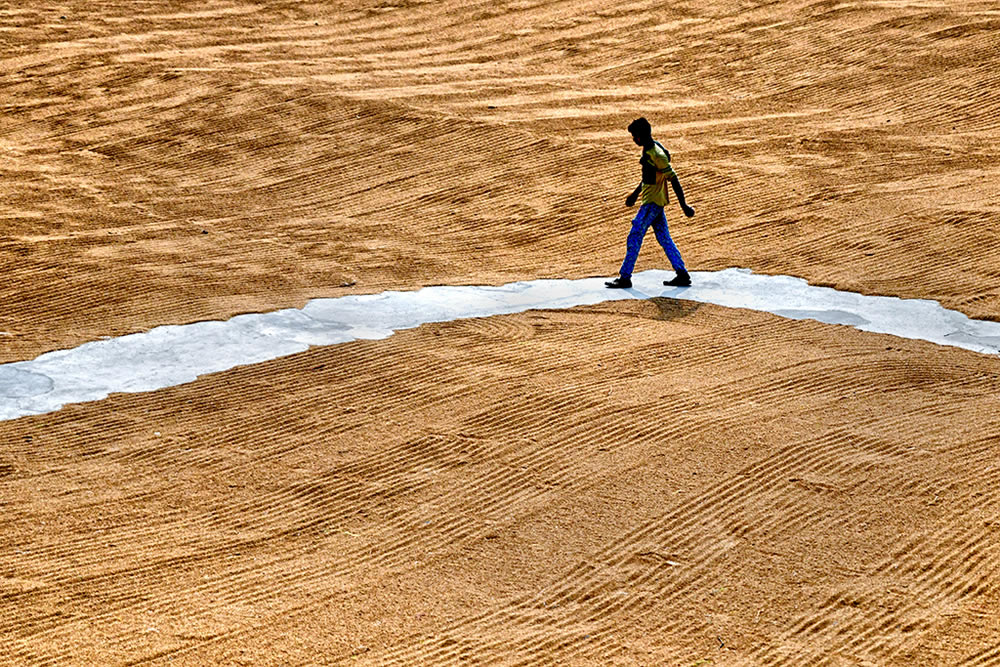
#18 Pattern In Wrapping
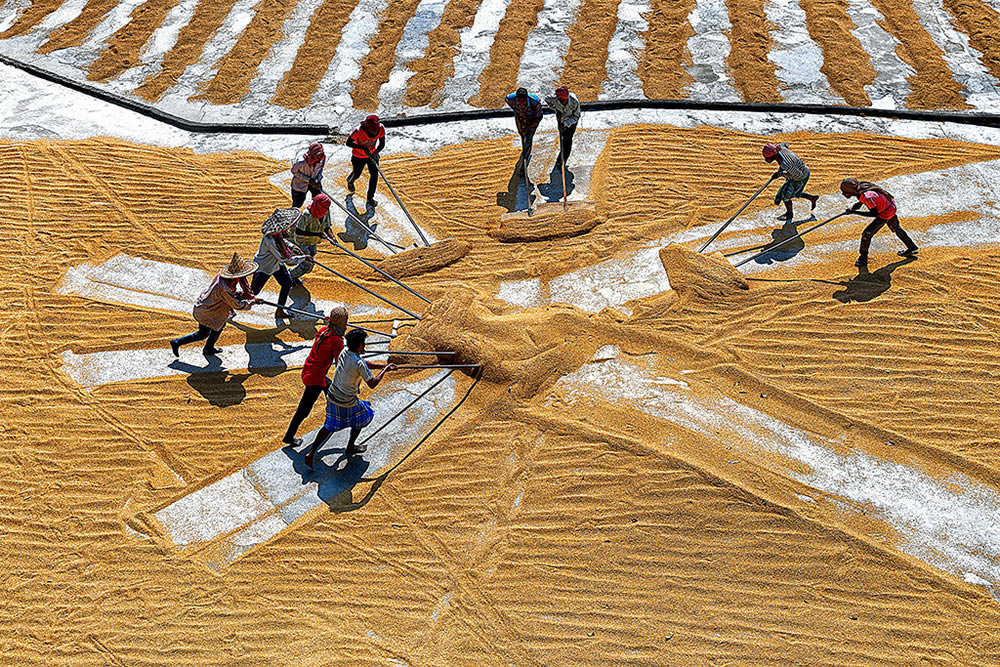
#19 Pattern In Wrapping
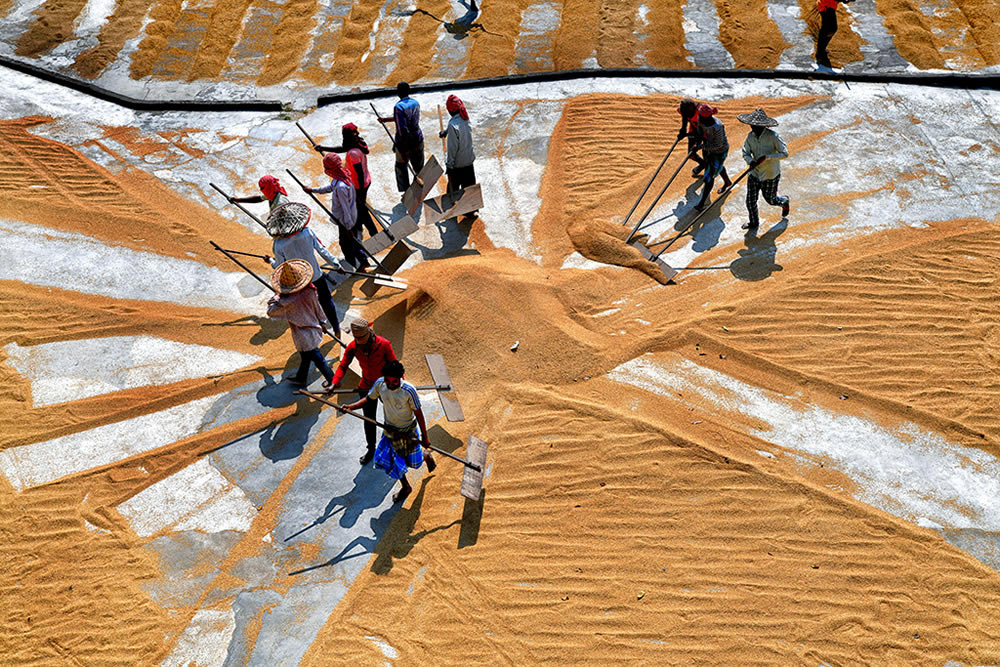
#20 Pattern In Wrapping
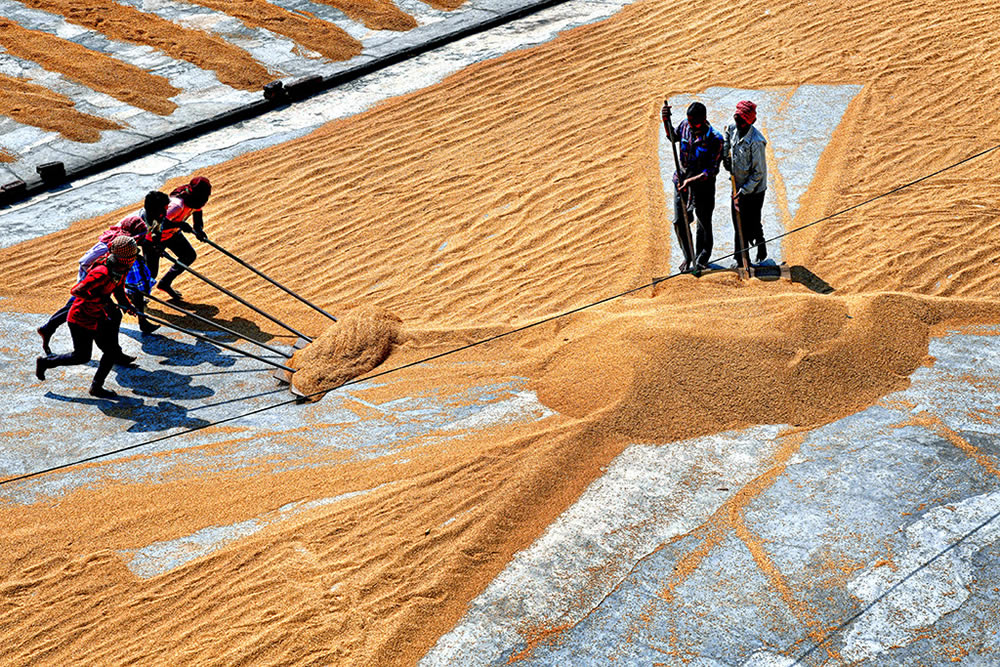
#21 Pattern In Wrapping
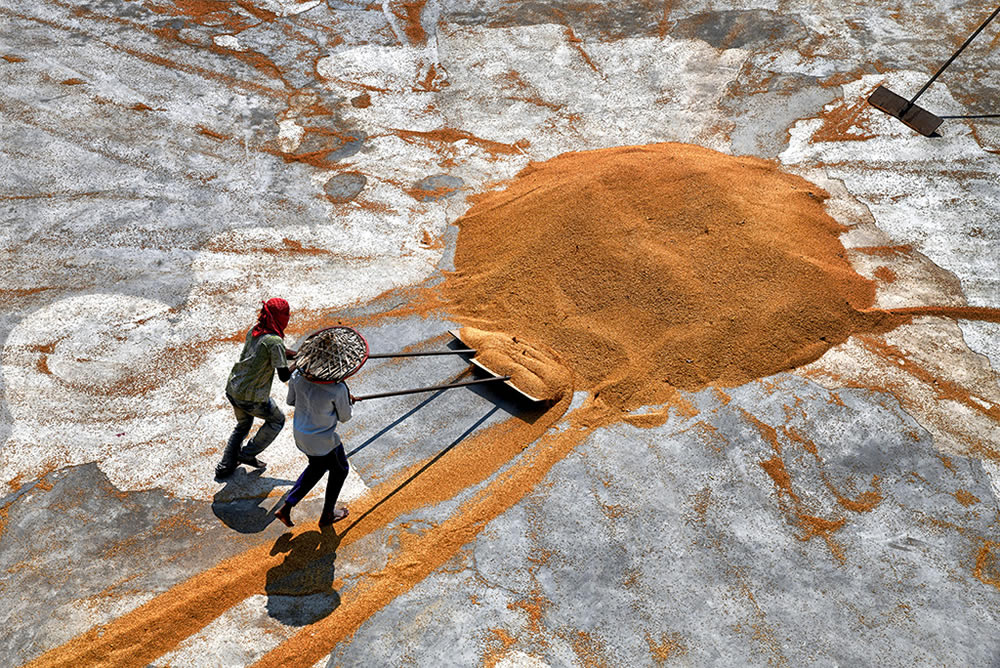
#22 Pattern In Wrapping
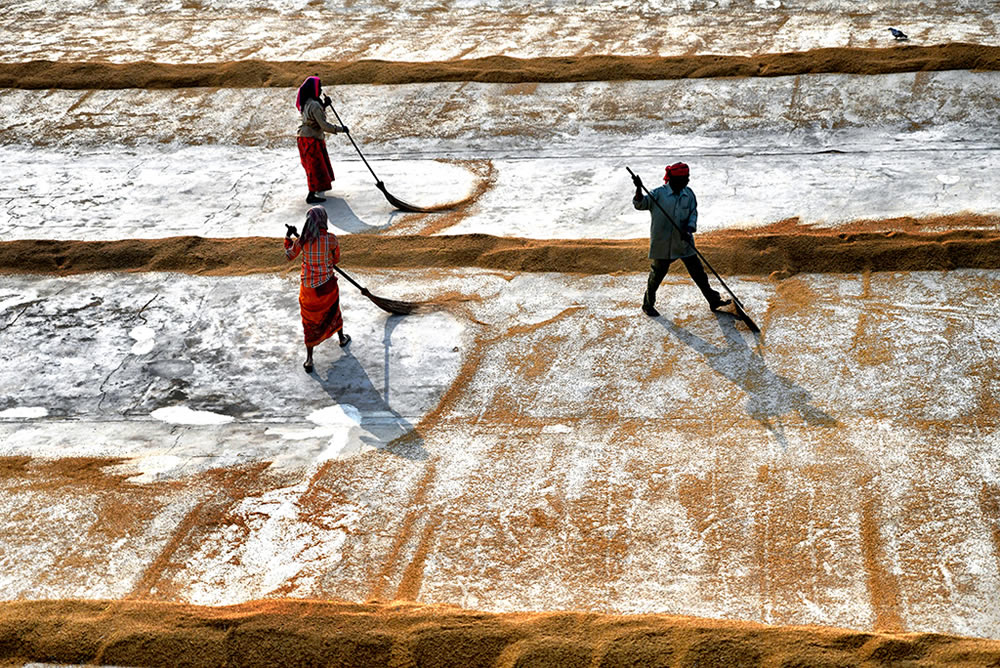
#23 Covering
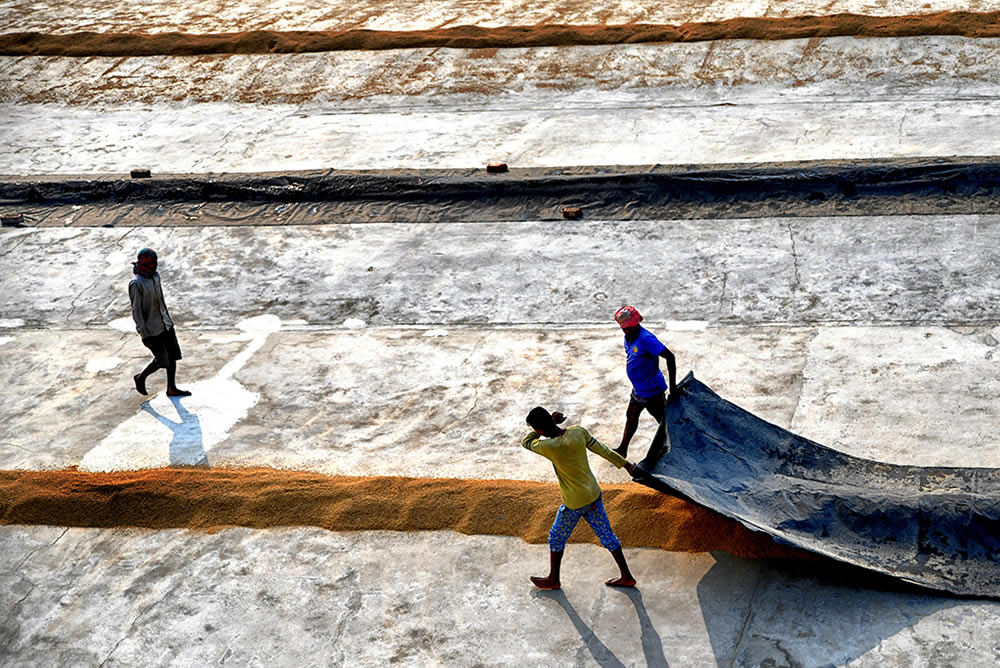
#24 Bagging
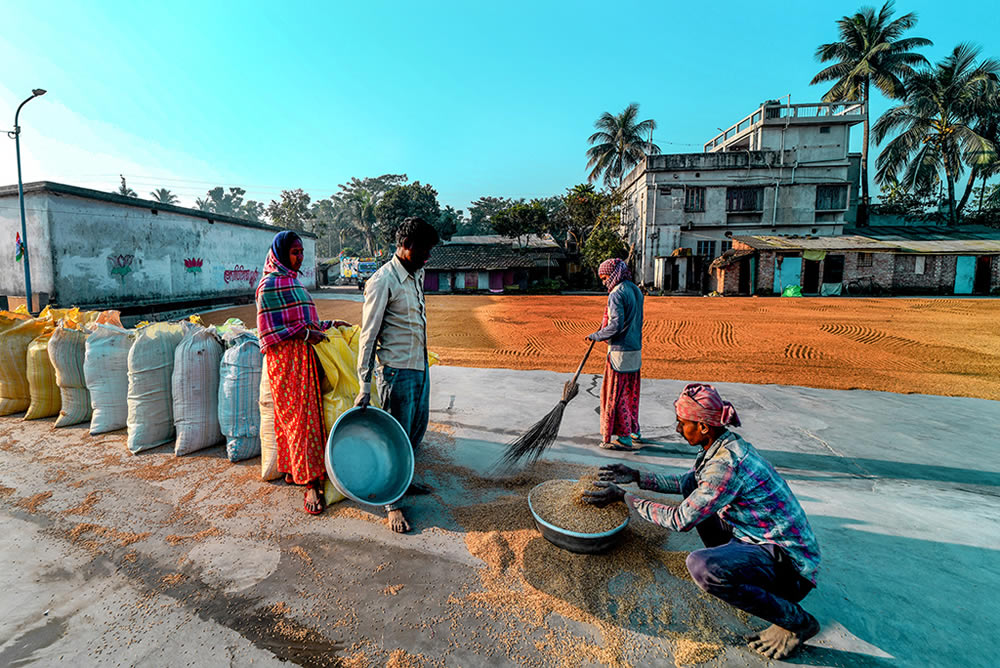
#25 Bagging
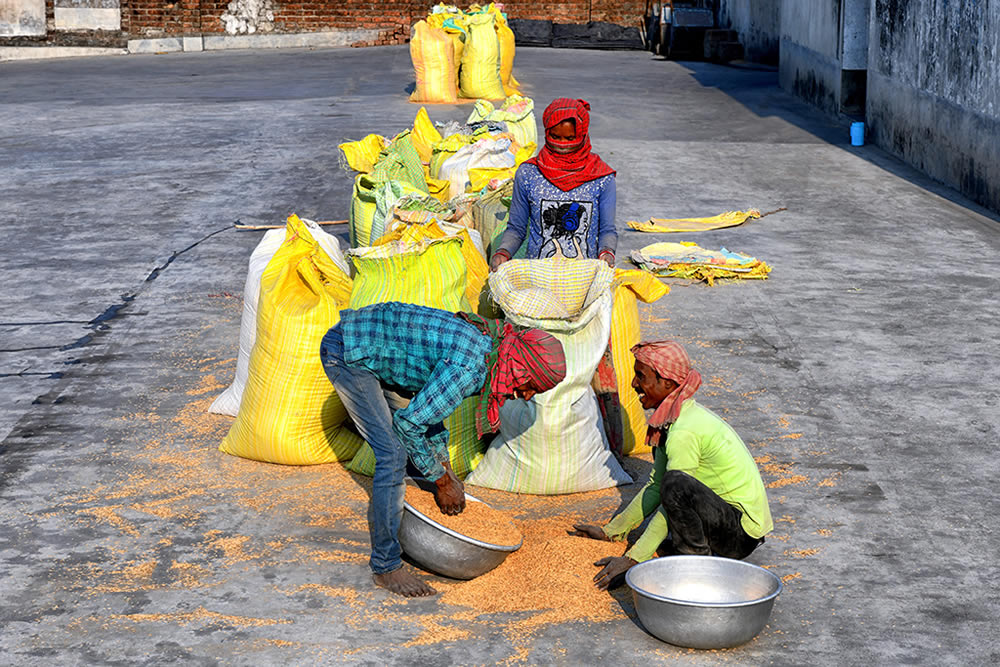
About Shaibal Nandi
He is an ameteur photographer of age about 54 years practicing photography seriously for last 4 years. By profession he is in government service and has taken up photography as a passion. He has very little knowledge about photography before and started with Nikon D5200 with 18- 140 mm Nikon lens.
Presently he is using Nikon D850. He is basically interested in street photography with human interest, different rituals, cultures, traditions of people across the country. Beside those, he also like creative and abstract works. His works have been published in few international sites and magazines. He participated in national and international salon competitions and achieved AFIP distinction. His social media links are given below.
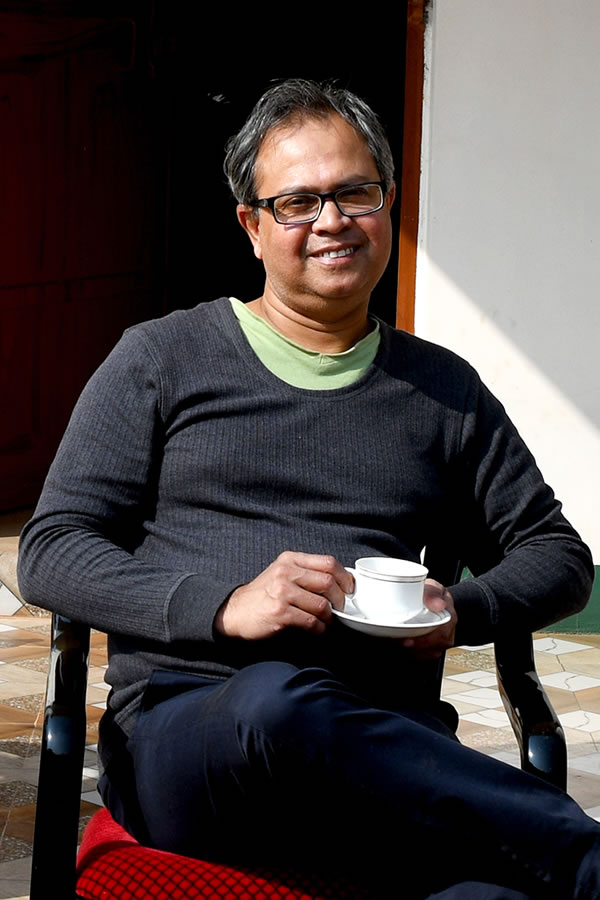
You can find Shaibal Nandi on the Web :
Copyrights:
All the pictures in this post are copyrighted to Shaibal Nandi. Their reproduction, even in part, is forbidden without the explicit approval of the rightful owners.

